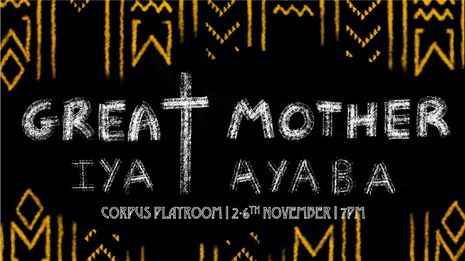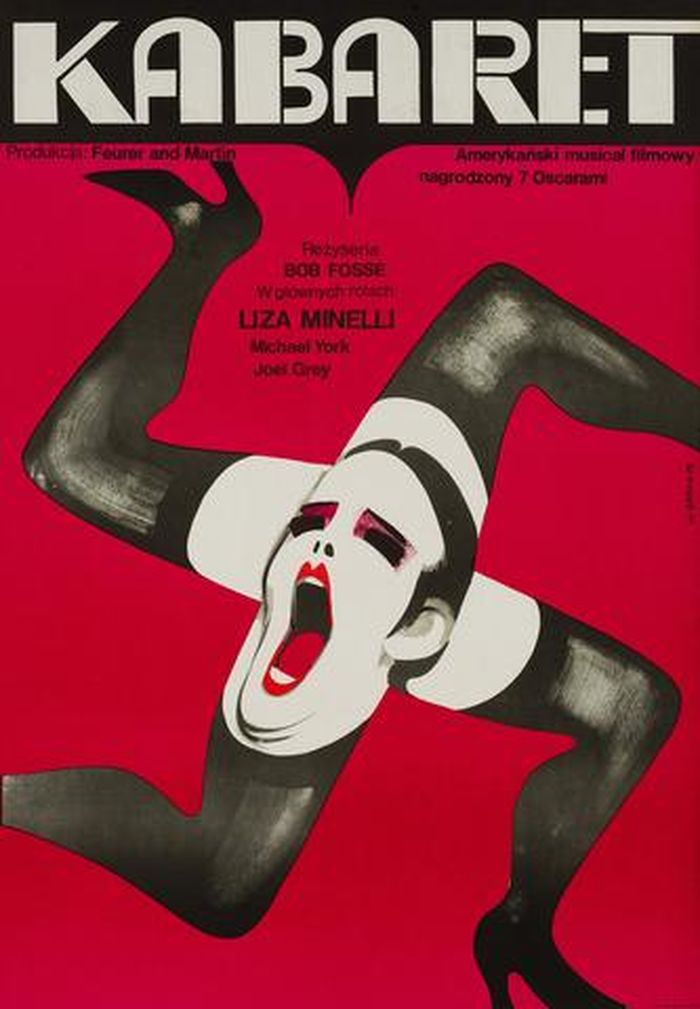Great Mother – Iya Ayaba: ‘A theatrical tour de force’
Theatre Editor Stanley Lawson reviews this week’s Corpus Mainshow, Mojola Akinyemi’s Great Mother – Iya Ayaba

It is a rare talent indeed to be able to both write and direct equally well – many gifted directors write mediocre plays and many brilliant writers are poor directors, not just in student theatre but among professionals as well. However, the production of Great Mother Iya Ayaba running this week at the Corpus Playroom is a showcase that some people can do both, and do so very well. Mojola Akinyemi deserves high praise for both the compelling writing and direction of Great Mother Iya Ayaba. High impact monologues which demanded – and got - the audience’s total attention and many well-paced scenes were elevated by the directorial decisions on sound, music, lighting (Eve Machin, Zoë Kite and Catriona Salvini among others) and a whole host of staging choices which fitted the text wonderfully. Particularly, the use of low light and sound to move set instead of a blackout meant that the pace of the piece wasn’t broken, and the emotional tension between movement sequences and the other scenes carried through to the climax.
“She rose to the most extreme needs of the part”
The movement sequences were another example of the directorial elevation of an already excellent text (the remarkable work of Movement Director Jack Ward); they gave the whole play an urgency and tension that the realist scenes could not achieve alone. Working in tandem, the spoken plot and the non-verbal movement sequences pulled the audience further into the conflict – both the actual war occurring in the play, and the internal turmoil of the characters.
The narrative of the script, set amidst the Biafran War in 1960s Nigeria, is provocative, tackling colonialism and atrocity head-on while not slipping into polemic or losing sight of the emotional grounding of each character. The emotional intensity of the characters serves as a prism through which the atrocities of war and the long shadow of colonial powers are refracted with devastating results. The repeated motif of the images of starving children, a fixation of the British press during the war, was especially powerful and complicated by exploration of the relationship between the war photographer and their subject.
Breathing life into Akinyemi’s text was a talented cast, who gelled well together. For the second time this term, this critic has been blown away by a performance by Thea Melton on the Corpus Playroom stage. After an impressive performance in the Week Two production of Vinegar Tom, her role here as Sister Agnes was the most emotionally demanding of the production, yet she rose to the most extreme needs of the part. The pain of a character who is mired in uncertainty and trauma is no small order for any actor but Melton prevailed, convincingly inhabiting the complexities and nuances of Sister Agnes.
Among the rest of the cast, impassioned performances abounded with each cast member fitting into the story and adding not just to the narrative, but the energy and atmosphere of the play as a whole. Additionally, the chemistry of the fraternal rivalry between Taiwo (Ditie Eradiri) and Kehinde (Owen Igiehon) was strong, the political and personal tensions between them running into each other to great effect.
Great Mother - Iya Ayaba is some of the best student writing I have ever seen staged in Cambridge, with personal pain, religious authority and the politics of war colliding to produce a brilliant script. Furthermore, its direction, technical direction and acting match this quality, elevating the whole performance to a compelling, heart-rending, theatrical tour de force.
 News / Deborah Prentice overtaken as highest-paid Russell Group VC2 February 2026
News / Deborah Prentice overtaken as highest-paid Russell Group VC2 February 2026 Fashion / A guide to Cambridge’s second-hand scene2 February 2026
Fashion / A guide to Cambridge’s second-hand scene2 February 2026 News / Downing Bar dodges college takeover31 January 2026
News / Downing Bar dodges college takeover31 January 2026 Comment / College rivalry should not become college snobbery30 January 2026
Comment / College rivalry should not become college snobbery30 January 2026 Lifestyle / Which Cambridge eatery are you?1 February 2026
Lifestyle / Which Cambridge eatery are you?1 February 2026









